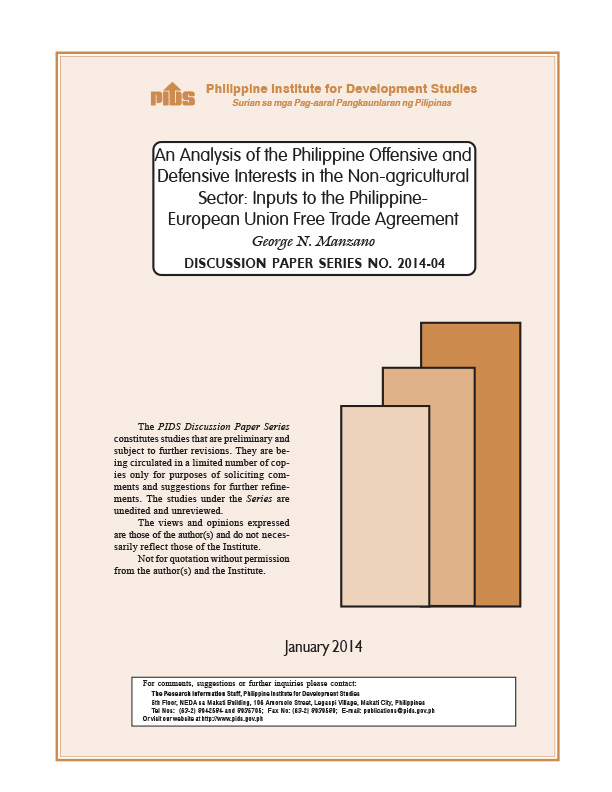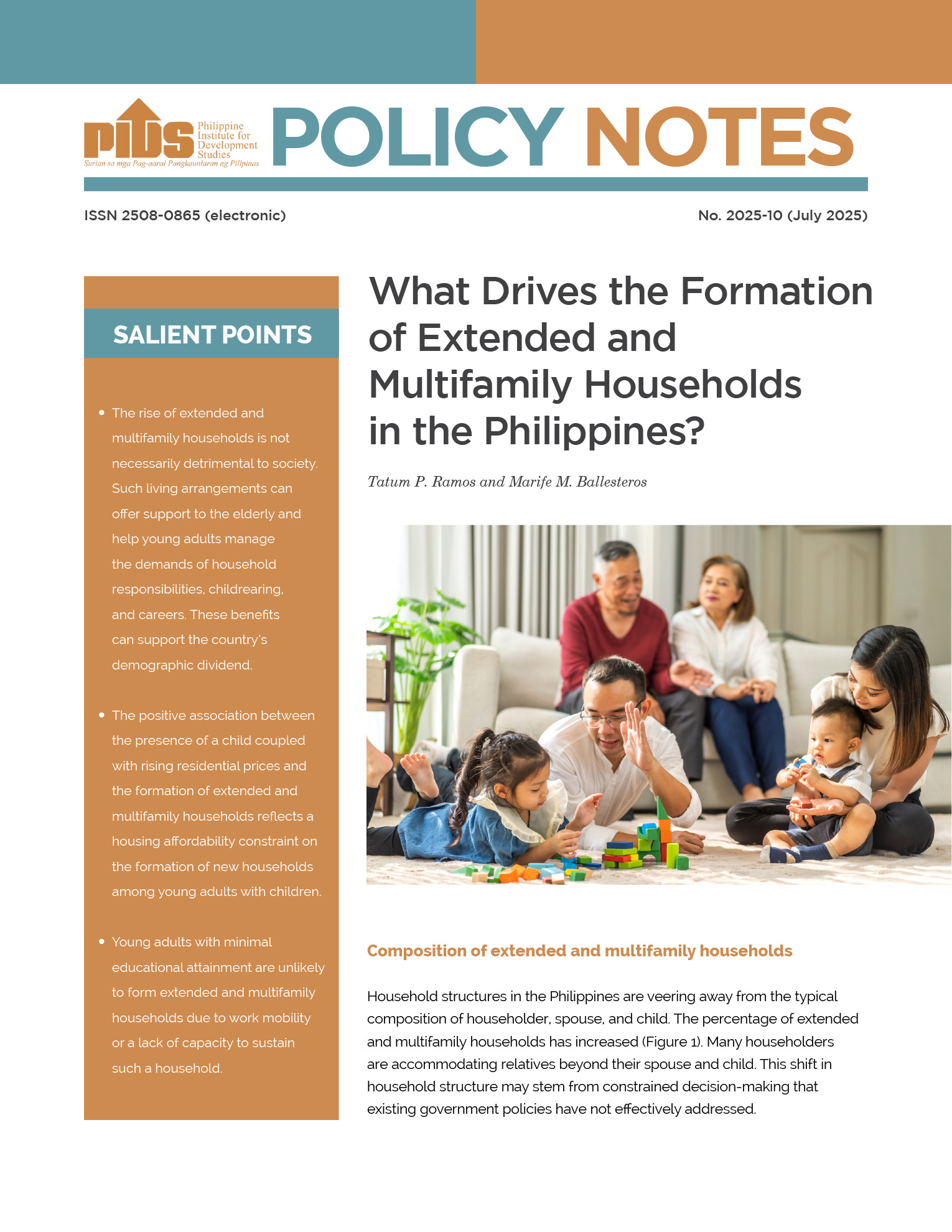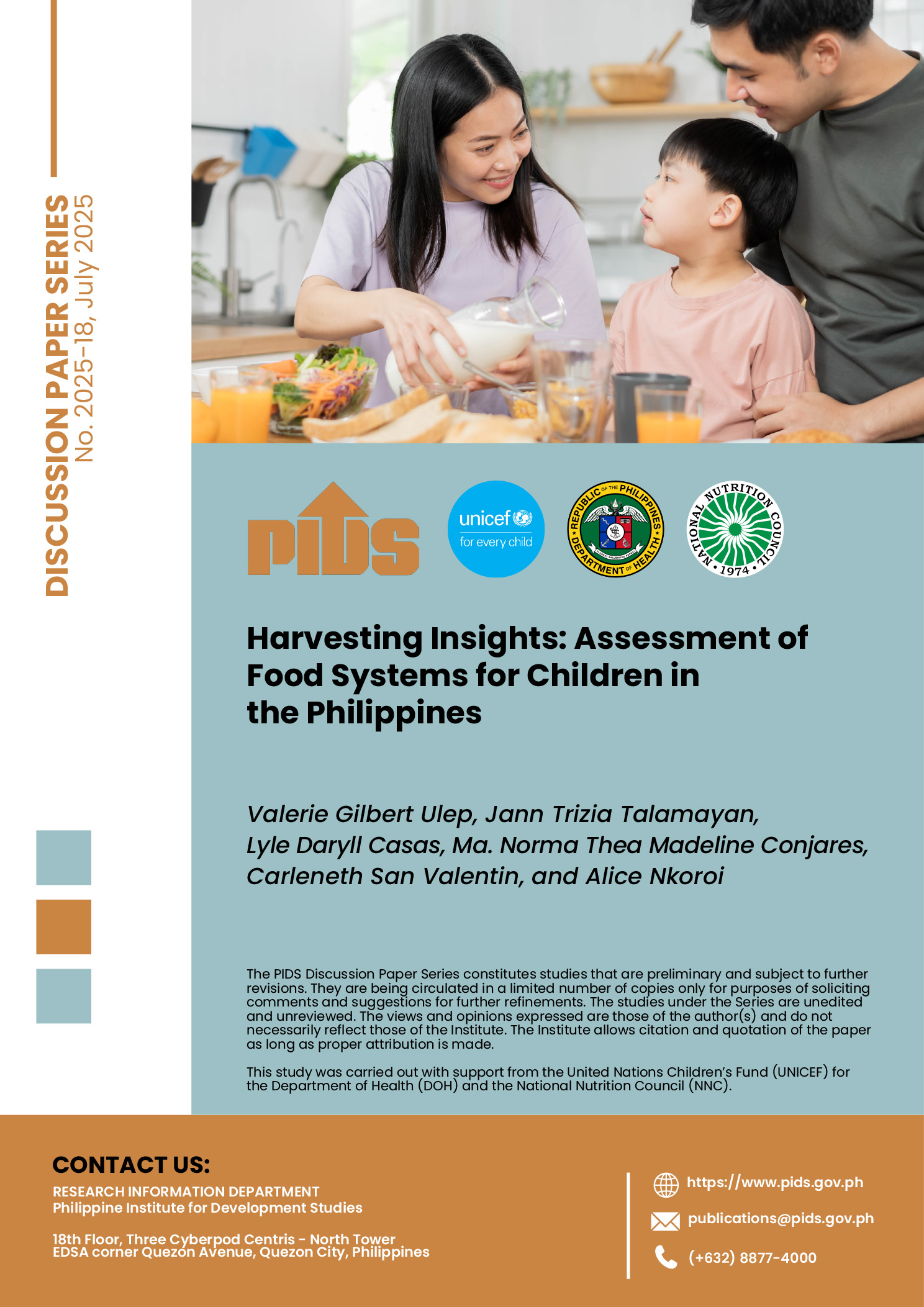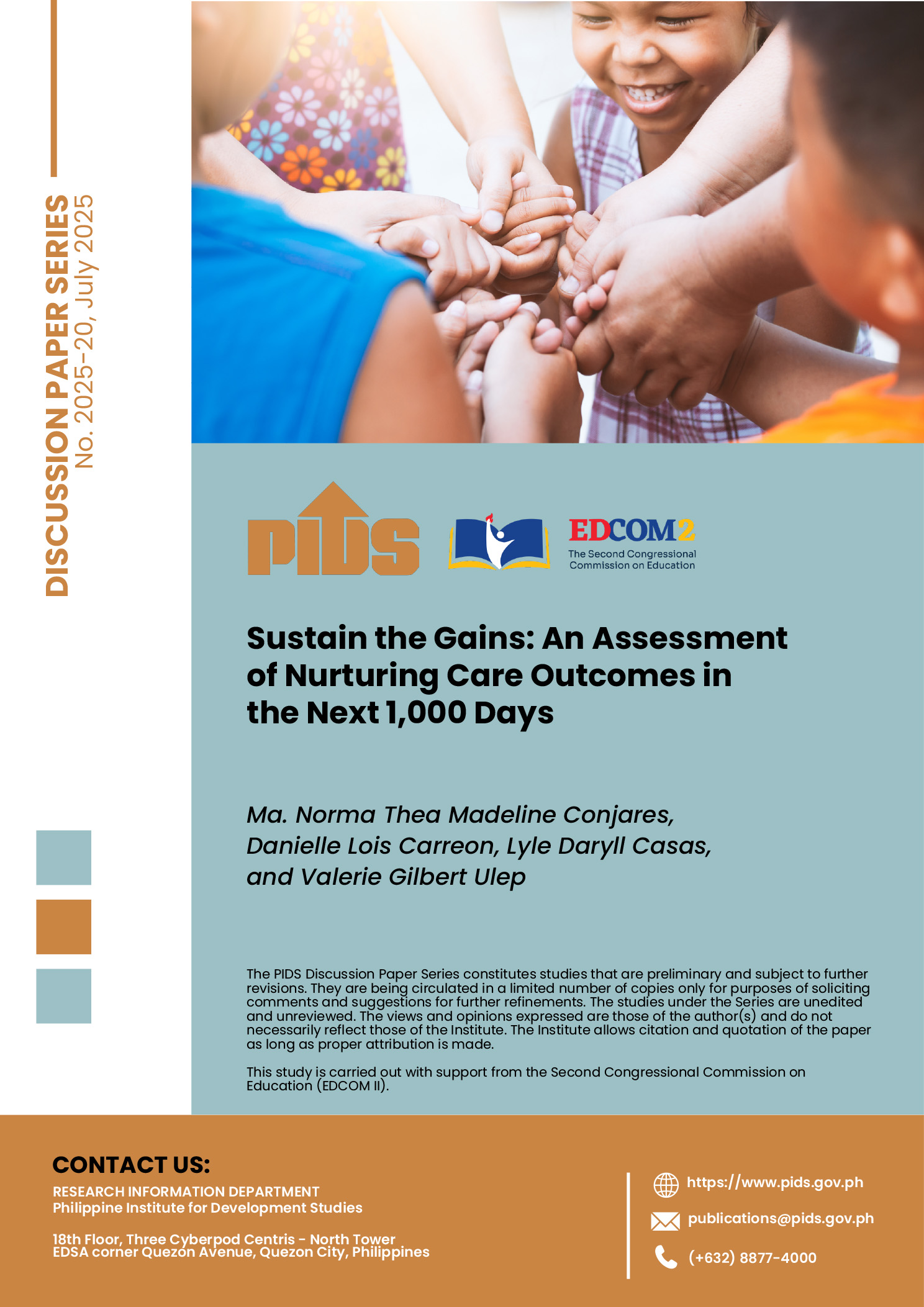In drawing up the negotiating stance of the Philippines in light of the Philippines-European Union (PH-EU) free trade agreement (FTA), it is important to articulate its offensive and defensive interests. Indications of the offensive and defensive interests can be gleaned from standard measures of competitiveness as well as complementarities of the partners. However, in operational terms, negotiators would require analysis that is carried out at more specific tariff levels. This paper proposes the framework to generate different offensive and defensive lists of commodities in the non-agricultural sector as input to the Philippine negotiators. Because the criteria that is used in generating the offensive and defensive lists is purely economic in nature, the negotiators are expected to weigh in the political and non-economic criteria to determine the final lists for negotiations in the PH-EU FTA.













